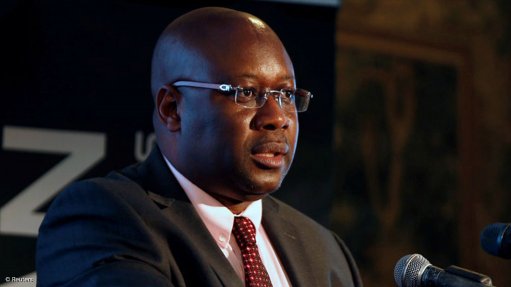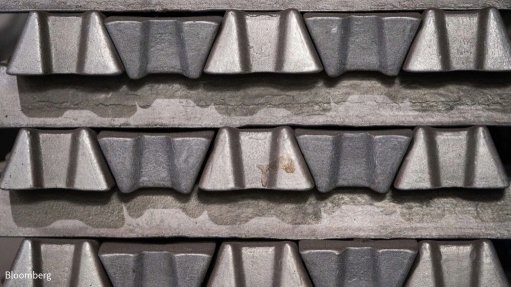ICT sector can help sub-Saharan Africa slash emissions by 15% by 2030 – Ericsson
The information and communication technology (ICT) sector has a significant role to play in helping sub-Saharan Africa achieve its various climate targets, says Ericsson head of sustainability and corporate responsibility Ayub Osman.
There is an urgent need to reduce the wide-ranging impact of climate change, which could affect health and wellbeing, wildlife, agriculture, ecosystems and energy and is one of the most pressing global challenges.
“As global and business leaders, civil society groups and scientists continue to tackle the climate change agenda, we must all understand our critical role in securing a sustainable and safer future for generations,” he says.
The setting of global targets and the measuring of progress at the United Nations’ yearly Climate Conference of the Parties and the Biodiversity Conference are good steps.
However, it will take the concerted efforts of the private sector and governments, as well as advanced sustainable innovations, to shift the needle.
According to Ericsson research, ICT solutions have a high potential to reduce global greenhouse-gas (GHG) emissions by up to 15% by 2030, Osman notes.
“At Ericsson, we believe that ICT is a critical piece in this process and has a role to play in helping sub-Saharan Africa achieve its climate targets,” he says, citing International Telecommunication Union data showing a record 53.6-million tonnes of electronic waste (e-waste) generated globally in 2019.
It is predicted that the yearly generation of e-waste will reach 74.7-million tonnes by 2030.
“Equipment from the technology and telecommunications industries, in the end, becomes e-waste and contributes to global climate issues.”
If not properly disposed of, components in e-waste can lead to environmental consequences, such as an increase in GHG emissions, in addition to other environmental impacts, including harm to biodiversity.
“Our sustainability drive is backed by a strategy that ensures we take pragmatic steps to dispose of e-waste responsibly,” he says.
“Through our Product Take-Back management programme, we work with our customers to recycle e-waste in accordance with the law and high environmental standards.”
Ericsson, decommissioning equipment, at no cost to over 40 customers across 28 countries across Africa, took back about 8 271 t of e-waste – of which about 98% was successfully recycled – from January 2012 to August 2022 from its operating countries.
“Additionally, we know that high reuse and recycling rates start with smart product design, so we make responsible material choices, increase our use of recycled materials and design products that enable efficient recycling.”
Steady progress has been made as the company pursues its ambition to reduce global warming by achieving a net-zero emission status across its value chain by 2040.
The company is confident that it will reach its first major milestone of cutting emissions by 50% in the supply chain and portfolio by 2030.
“Our enterprise offerings support other industrial sectors, such as energy, manufacturing and transportation, in their transition towards a low-carbon economy. We are also leading with technological innovations that will help reduce network energy use,” he continues.
These include solutions that allow operator networks to use as little energy as possible while handling the expected growth in data traffic and meeting the needs of both current and future fifth-generation (5G) networks.
Ericsson believes it is possible to scale up 5G, while simultaneously aiming to break the rising energy consumption curve.
“We have streamlined our approach into three core elements: plan differently with a focus on a sustainable network evolution; deploy differently by effectively modernising the existing network when scaling 5G; and operate differently by leveraging artificial intelligence, machine learning and automation,” he concludes.
Comments
Press Office
Announcements
What's On
Subscribe to improve your user experience...
Option 1 (equivalent of R125 a month):
Receive a weekly copy of Creamer Media's Engineering News & Mining Weekly magazine
(print copy for those in South Africa and e-magazine for those outside of South Africa)
Receive daily email newsletters
Access to full search results
Access archive of magazine back copies
Access to Projects in Progress
Access to ONE Research Report of your choice in PDF format
Option 2 (equivalent of R375 a month):
All benefits from Option 1
PLUS
Access to Creamer Media's Research Channel Africa for ALL Research Reports, in PDF format, on various industrial and mining sectors
including Electricity; Water; Energy Transition; Hydrogen; Roads, Rail and Ports; Coal; Gold; Platinum; Battery Metals; etc.
Already a subscriber?
Forgotten your password?
Receive weekly copy of Creamer Media's Engineering News & Mining Weekly magazine (print copy for those in South Africa and e-magazine for those outside of South Africa)
➕
Recieve daily email newsletters
➕
Access to full search results
➕
Access archive of magazine back copies
➕
Access to Projects in Progress
➕
Access to ONE Research Report of your choice in PDF format
RESEARCH CHANNEL AFRICA
R4500 (equivalent of R375 a month)
SUBSCRIBEAll benefits from Option 1
➕
Access to Creamer Media's Research Channel Africa for ALL Research Reports on various industrial and mining sectors, in PDF format, including on:
Electricity
➕
Water
➕
Energy Transition
➕
Hydrogen
➕
Roads, Rail and Ports
➕
Coal
➕
Gold
➕
Platinum
➕
Battery Metals
➕
etc.
Receive all benefits from Option 1 or Option 2 delivered to numerous people at your company
➕
Multiple User names and Passwords for simultaneous log-ins
➕
Intranet integration access to all in your organisation


















